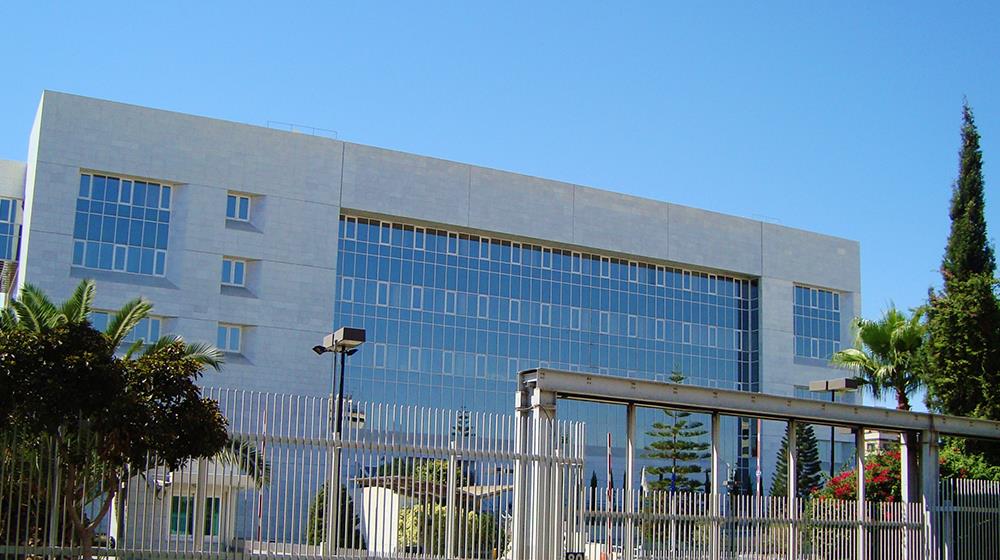The Central Bank of Cyprus has published its annual Financial Stability Report for 2023, where it notes that the financial sector remains resilient as a whole and is able to absorb any unexpected shocks.
Listing the risks for which financial institutions need to shield themselves, the CBC, among other things, calls on them to demonstrate social sensitivity in their pricing and business operations.
Resilient Cypriot economy
Despite the adversity of two wars in the region, the sanctions imposed and adverse developments in the US banking sector and Switzerland in 2023, the Cypriot economy showed resilience and adaptability, the CBC says. Specifically, in 2023, the Cypriot economy continued to grow, albeit at a lower rate compared to 2022, with real GDP increasing by 2.5%, compared to 5.1% in 2022.
In addition, inflation averaged 3.9%, down significantly from the average of 8.1% recorded in 2022, with CBC pointing to ECB's restrictive monetary policy and significant increases in benchmark interest rates in 2023 as the main reason for the slowdown.
Risks to financial stability
As regards the financial sector, the main risks to financial stability, as identified in the CBC report, stem from global developments in connection with the specificities of the Cypriot financial system. High price levels, combined with elevated lending rates, especially on loans linked to the Euribor or ECB base rate, continue to pose challenges to the balance sheets of the domestic private non-financial sector. However, this sector remains resilient, and recent reductions in the ECB's key interest rate are expected to strengthen its debt repayment capacity.
CBC notes that real household incomes remain at slightly lower levels than before the start of the energy crisis in mid-2021, while households whose loans carry a variable interest rate are required to meet increased loan repayments. Furthermore, there is an increase in the leverage of non-financial corporations. The above, combined with the high indebtedness of the private non-financial sector, creates challenges with regard to the sector's ability to repay its liabilities, despite the downward trend in debt in recent years.
In this regard, CBC urges credit institutions "to consider their reputational risk and incorporate a socially sensitive element in their pricing and business operations to mitigate the impact on society".
Possible increase in NPLs may affect profitability and capital adequacy of credit institutions
Potential deterioration in the asset quality of the financial sector, especially in the loan portfolio of credit institutions, continues to be a challenge, although to date, there have been no such indications, the CBC says. A potential increase in non-performing loans (NPLs), also due to higher interest rates, despite reductions in recent months, may put pressure on the profitability of credit institutions, due to increased provisions, and may affect their capital adequacy in the future.
In addition, CBC says that smaller credit institutions should accelerate efforts to clean up their loan portfolios, as the volume of NPLs remaining on their balance sheets in 2023 was significant as a share of their portfolio.
Financial institutions exposed to the real estate sector
CBC also says that the significant overall exposure of financial institutions to the real estate sector makes them vulnerable to any negative developments in the real estate market, despite the upward trend in this market so far. A potential decline in real estate prices, coupled with the fact that real estate investments are not readily liquid, makes the financial sector vulnerable to potential price changes, with potential large changes in real estate prices carrying risks to the profitability, liquidity, and capital adequacy of domestic financial institutions.
However, according to CBC, the likelihood of a negative impact on financial stability is, so far, limited, as the Cypriot real estate market appears to be in line with the country's macroeconomic data.
Risks from climate change, cyber-attacks, geopolitical tensions
The financial sector is also facing emerging external risks arising from climate change, cyber threats and escalating geopolitical tensions, the CBC adds. The risk associated with climate change has worsened significantly globally in recent years, and the need for a smooth transition to a zero-emissions economy by 2050 is becoming imperative, it says. In addition, the financial sector's exposure to cyber risks has also increased in recent years, due to the escalation of geopolitical tensions, in line with greater digital connectivity, the increase in teleworking after the pandemic, as well as the growing trend to outsource part of the critical IT infrastructure.
Moreover, the ongoing war between Russia and Ukraine and the escalating tensions in the Middle East, with the possibility of a wider conflict, are further factors of concern for the global economy, as well as for financial stability.
CBC "urges financial institutions to intensify their efforts to shield themselves from the above emerging risks. In particular, financial institutions should take appropriate steps to identify their potential impact on their range of activities and integrate them into their overall risk management framework," it underlines.
High profitability, capital adequacy and liquidity
Despite the above challenges, Cyprus' banking sector has remained resilient in 2023, recording high levels of profitability, capital adequacy and liquidity, and continues to seamlessly serve the credit needs of households and businesses, CBC notes in its report.
Benefiting from the high profitability achieved in 2023, credit institutions have further strengthened their capital adequacy, shielding their balance sheets against potential shocks. It is noted that the adequate capitalisation of the banking sector, coupled with the excess liquidity it has recorded and the maintenance of its asset quality in the current environment of high price levels and rising interest rates, contribute to maintaining the resilience of the banking sector.
(Source: CNA)









